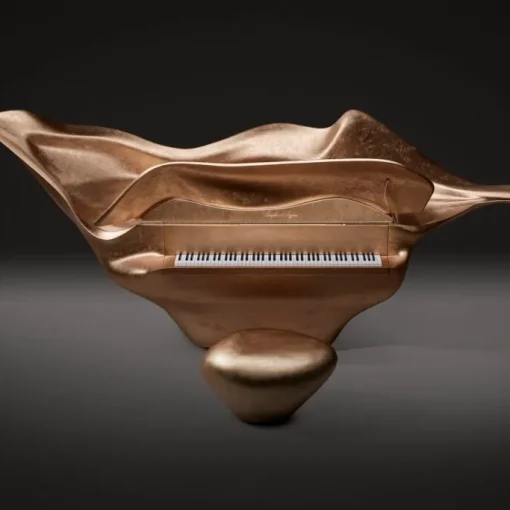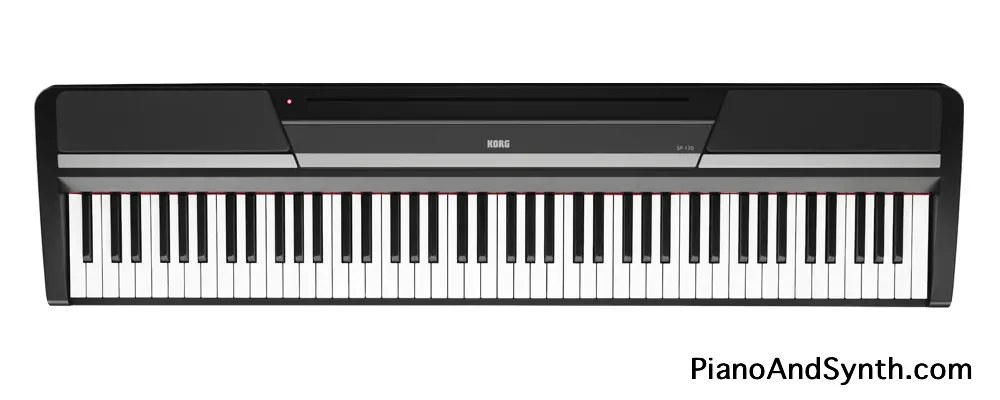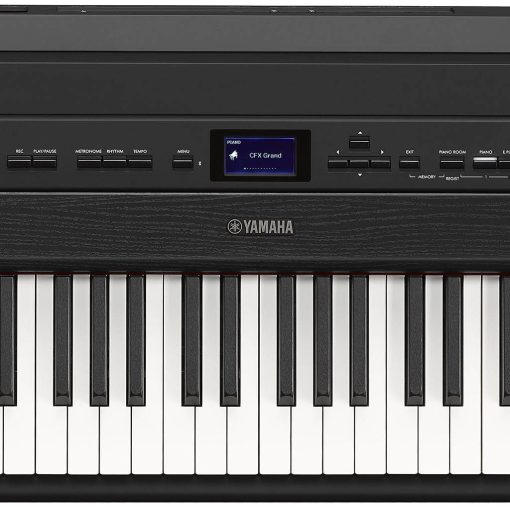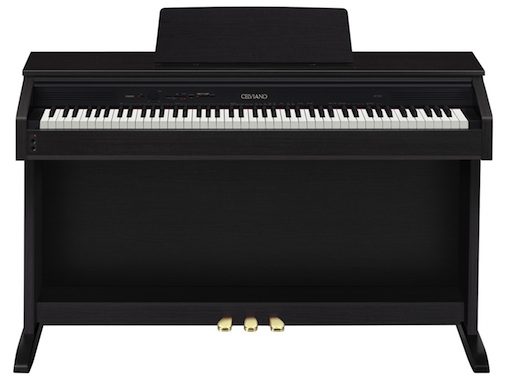Learning to play any new instrument can be daunting, particularly if you’ve never tried it before, but the benefits are worth the effort.
The piano is a wonderful instrument and fits nicely into a wide variety of musical styles. Here are our recommendations for the beginner wanting to learn how to play the piano.
Buy or Borrow the Best Piano You Can
Real acoustic pianos, even upright ones, can be very expensive — not to mention heavy, difficult to transport, and requiring considerable maintenance to keep them at their best.
You might do well to purchase a good digital piano instead. Digital pianos tend to be cheaper, more portable, and requiring less upkeep to sound good. Moreover, modern digital pianos sound and feel extremely realistic. Additionally, they sometimes come with built in features to make learning and playing easier.
If buying a digital piano, you should definitely look for one with 88 keys. Good manufacturers to go for are Yamaha, Casio, Roland and Korg.
Buy the Book: Buying a Music Keyboard or Digital Piano.
Find A Good Teacher
If you are serious about playing and can afford to go to a teacher, it’s definitely worth investing the time and money into doing so. Most towns have at least one decent teacher.
If you know someone who already takes piano lessons, ask for a recommendation.
It’s important to get on well with your teacher, and additionally to ensure that they’re happy and able to teach the kind of music you really want to play. Traditionally, piano teachers have swayed towards teaching classical music, but today it’s much easier to find tutors who will teach rock, pop, jazz or other styles of music — or indeed a mixture.
Invest in Some Software
There are a number of decent pieces of computer software available which can provide tutorials on the fundamentals of music and the basics of playing the piano. They can be a worthy alternative, or supplement, to having a piano teacher.
Recommended software includes Piano Wizard.
Online resources include OnlinePianist.com.
Practice Often
Students who play the piano often will benefit the most, particularly if they have some kind of schedule or goal in mind.
It depends what you want to get out of playing the piano, but aimlessly tinkling the keyboard will generally not lead to great progress being made.
You don’t have to commit to learning so many pieces of music every month or doing this, that or the other, but it can be good to set even an informal schedule of the sorts of music you’d like to play, and then work out how you’re going to achieve that.
Of course, if you have a teacher you will more than likely have a weekly schedule of practice. Your tutor will help you achieve certain goals on a regular basis, such as learning to play particular pieces of music proficiently.
Whatever you decide, playing often (ideally, every day) will definitely help you improve.
Work on Technique
Playing technique is very important and it’s worth learning it early. A teacher will help you out in the early stages.
Think particularly about your posture, positioning of hands in relation to the keys, and the way you play the keys.
Poor posture and technique will, at best, impair the quality of the music you play. At worst, it could lead to injury.
If playing an acoustic piano, invest in a decent piano bench. If playing a digital piano, you should get a decent, adjustable stand as well as piano bench.
Technique can be improved by playing through various exercises such as scales and arpeggios.
Recommended Reading:
- 7 easy ways to improve your piano-playing strength and dexterity
- Essential Accessories for Keyboard Players: Keyboard Benches
Understand the Theory
Music theory may not seem like the most fun thing to learn at first, particularly if all you want to do is play, but in the long run it makes learning new pieces of music, as well as sight reading, improvisation and playing ‘by ear’, much easier.
A good piano tutor will no doubt introduce the concept of music theory along the way. At the very least, it’s worth learning basic major and minor chords, scales and arpeggios, note intervals, chord inversions, and basic music notation.
Learn to Read Music
Being able to read printed music can be of real benefit, as it means you can pick up any manuscript and have a decent attempt at playing it.
If you have a teacher, they will recommend basic music books to begin learning.
If you’re self-teaching, pick up beginner books to start with and gradually work up. It’s better to start with something simpler rather than buy more advanced music that’s difficult to play well and can leave you frustrated. Simple music is always good to have around for things like sight reading practice, even if you graduate on to more complex music.
It’s also worth learning to read lead sheets, particularly if you’re going to be playing more contemporary music, working with bands and singers, or improvising. This tend to show just the main chords to be played at any point during a piece of music.
Make it Fun
Always remember why you’re learning the piano. It’s to have fun. Take practicing and learning seriously, of course, but not so seriously that you end up hating it.
Mix things up a bit if learning and practicing become stale. Try a new piece of music or have a go at playing by ear or improvising. Really, don’t be afraid to experiment with the music you’re playing.
Develop the Passion
Get to the point where every time you see a piano you have the burning desire to play it. Don’t become a show-off (no-one really likes them) but do get a passion for playing. Desire to be the best you can be. Don’t compare yourself to other players and worry whether you’ll ever be as good as them. Concentrate on developing your own style.
Play With Others
Playing with other people in a band, or accompanying singers, can be a real buzz and take your playing to a new level. It develops cooperation and commitment. Even if it’s just a few musical friends jamming together, that no-one else ever hears, that’s great.
Learning how to play the piano is an exciting journey. Start off the right way and you’ll enjoy playing for many years to come.





One thought on “How To Play The Piano”
Thanks for sharing this, some good advice here. I think it’s also really important to make sure you are practicing properly, and not just often. Repetition of the wrong things can be a time-waster and sap the enthusiasm that helps keep us going!
Knowing HOW to practice is just as important as HOW MUCH we practice.